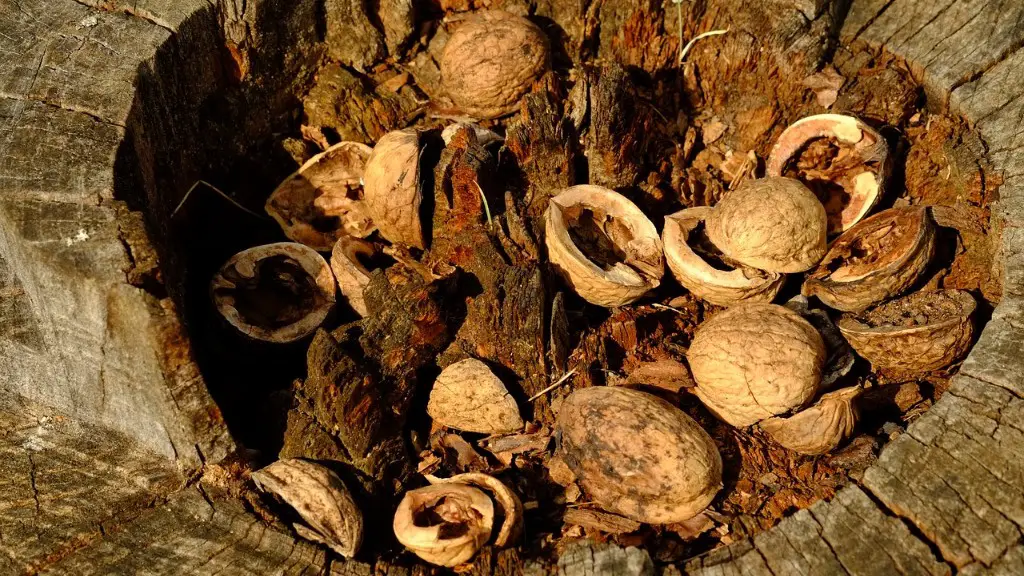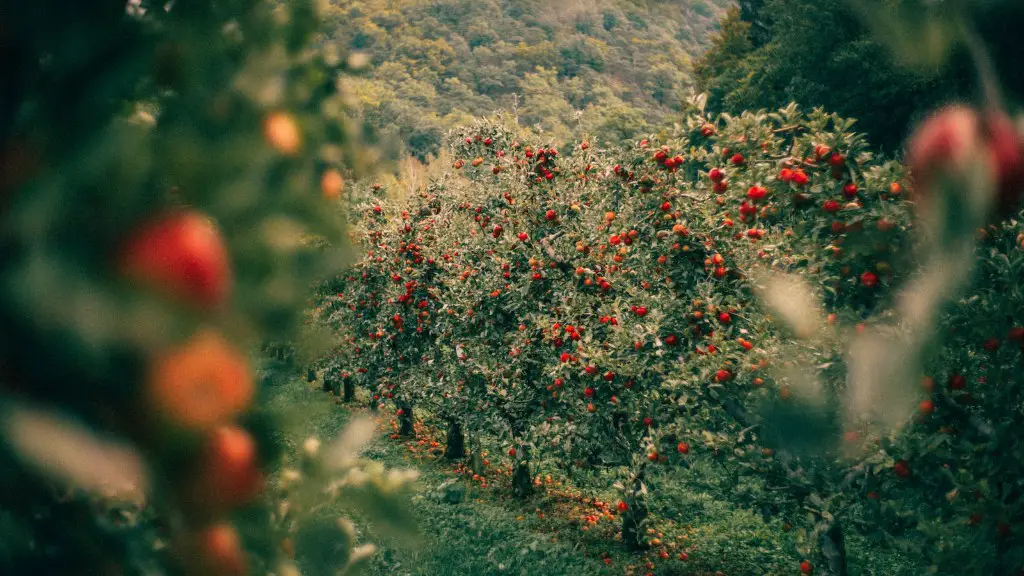When reading the labels on food products, you may have come across the phrase “may contain traces of tree nuts.” This is usually found on products that do not contain any nuts as an ingredient, but may have come into contact with nuts during manufacturing. The phrase is usually a precautionary measure for people with nut allergies. While the risk of allergic reaction is low, it is still important to be aware of before consuming the product.
The product may contain traces of tree nuts.
What does it mean when it says may contain tree nuts?
The “may contain” label is often seen on food products that may contain traces of an allergen, even though the product itself does not contain the allergen. This label is used to inform consumers that there is a possibility that the product may contain traces of an allergen, and they should exercise caution if they have an allergy to that particular allergen.
Some breakfast cereals, candy, crackers, cookies, chocolates, energy bars, flavored coffee, frozen desserts, marinade, barbeque sauces, some cold cuts, ice cream, alcoholic beverages (flavorings), lotions, shampoos, and soaps may contain tree nuts. People who have an allergy to tree nuts should avoid these products.
What does may contain traces of allergens mean
Precautionary allergen labelling is important for vegan products because they may contain traces of allergens that could pose a risk to people with food allergies. Allergens such as milk, eggs, fish, molluscs and crustaceans can be found in vegan products, so it is important to check the labels carefully before purchasing or consuming any vegan products.
If you have an allergy to nuts, be sure to check the ingredients of any liqueurs you plan to drink. Many popular brands, such as Amaretto, Amadeus, and Galliano, contain almonds, while others, such as crème de noix, Frangelico, and Nocello, contain hazelnuts. If you are even slightly allergic, it is best to avoid these drinks altogether.
Is may contain traces of nuts safe?
If you have a severe or anaphylactic reaction to nuts, you should use these products with caution. Although the chance of significant allergic reaction through contamination during processing is unlikely, it is still possible.
Although having a tree nut allergy does not necessarily mean that an individual is also allergic to peanuts, it is important to be aware that 30% of peanut-allergic individuals are also allergic to tree nuts. Individuals with tree nut allergies can typically consume seeds without difficulty, such as sesame, sunflower and pumpkin.
What is the most common tree nut allergy?
If you have a tree nut allergy, it is important to avoid all tree nuts, as even a small amount can cause a severe reaction. Some people with a tree nut allergy may also be allergic to one or more types of nuts, such as peanuts.
Oral immunotherapy (OIT) is a safe and effective treatment to minimize reactions to contact with food allergens, protecting against accidental exposure and empowering patients to eat a balanced, full diet with confidence. OIT can be used to treat tree nut allergy in patients of all ages and has been shown to be safe and effective in clinical trials.
Can I eat coconut if I’m allergic to tree nuts
While it’s possible to have an allergic reaction to coconut, most people who are allergic to tree nuts can safely eat coconut. Coconuts are not considered a “botanical nut,” so the ACAAI considers them to be a fruit.
A trace is a very small or slight amount of something. In this case, a trace of a smile is a very small or slight indication that someone is smiling. This could be a very faint smile, or just a hint of a smile. Traces can also be left behind by things that have passed by – like a footprint.
What does traces mean in food?
Food traceability allows us to follow the journey of our food from farm to plate. It is a necessary tool to ensure food safety and quality, as well as to provide transparency to consumers. By tracking food items and their ingredients through the supply chain, we can identify problems and issues more quickly and effectively, and take corrective action to prevent future contamination or adulteration.
This is a voluntary statement used to indicate that a product may be contaminated with a potential allergen through processing or manufacturing. These products should only be excluded for children with severe allergies under direction from a health professional.
What alcohol contains tree nuts
This is the season for nuts in alcoholic beverages!
Be on the lookout for amaretto, creme de noyaux, creme de noix, frangelico, galliano, kahana royale, nocello, and beefeater.
These drinks can contain high levels of sugar and calories, so enjoy in moderation!
Pure almond extract is made from three ingredients—almond oil, alcohol, and water. Any almond extract product with those ingredients is not safe for someone with a tree nut allergy.
Can I drink Starbucks with a nut allergy?
Starbucks takes great care to make sure that its coffee does not come into contact with nuts or peanuts, however there is always a risk of cross-contamination. This means that there is a chance that traces of peanuts or nuts could be present in the coffee. For people with severe allergies, this could potentially be dangerous. If you have any concerns, it is always best to speak to a Starbucks employee before ordering.
The best way to prevent a reaction to peanuts or tree nuts is to avoid them altogether. This means more than just not eating them – it also means not eating any foods that might contain tree nuts or peanuts as ingredients. The best way to be sure a food is nut-free is to read the label carefully.
Do Oreos may contain nuts
Oreo products are nut free.
The statement “may contain traces of peanuts or nuts” means that the product may have come into contact with peanuts or nuts at some point during production. This doesn’t necessarily mean that the product is unsafe, but it does mean that there is a risk that the product may contain peanut or nut allergens. For people with severe allergies, it is best to avoid products that carry this warning.
Final Words
If a product contains the allergy warning “may contain traces of tree nuts,” this means that the product was manufactured in a facility that also handles tree nuts. While the product may not contain any significant amount of tree nuts, there is a possibility that it could contain trace amounts. For people with severe tree nut allergies, even trace amounts of tree nuts can cause a serious or life-threatening reaction.
The phrase “may contain traces of tree nuts” is often seen on food labels, and it indicates that the product was manufactured in a facility that also processes tree nuts. This means that there is a possibility that the food may contain small amounts of tree nuts. For people with severe allergies to tree nuts, this can be a serious issue. Therefore, it is important to always read the labels of food products carefully to make sure that they are safe for you to consume.



